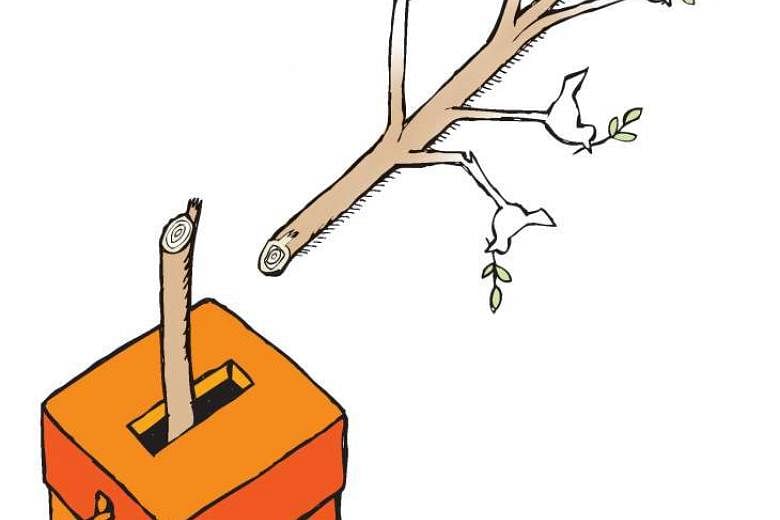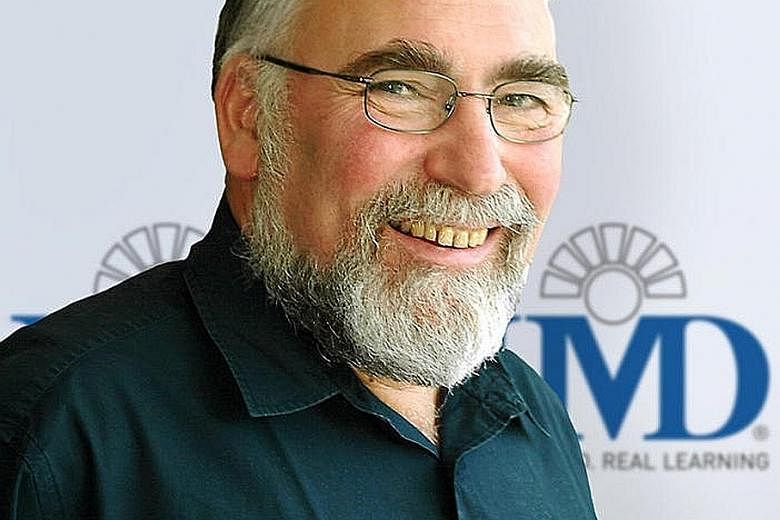The spectacle of the 2016 American presidential election could hardly have been more deplorable.
Yet, while billions of the world's eyes are focused on the tawdry American saga, from a political perspective - or indeed from virtually any perspective - the rest of the planet is not looking particularly uplifting.
Two of the most prominent transformative contemporary developments have been the rapid rise of China as a major global economic and geopolitical power, and the global crisis of democracy. The two are not intertwined in the sense of cause and effect. They are, however, not isolated.
Imagine if China had become a democracy by now as some thought and, far more, wished. Then imagine that the Chinese were having a presidential election. And from there, make the small leap to imagining one candidate being a Chinese carbon copy of Mr Donald Trump and the other a Chinese carbon copy of Mrs Hillary Clinton. Perhaps, best to stop imagining.
With respect to democracy, it is gruesomely amazing how things have turned out in this first decade and a half of the 21st century.
As Pankaj Mishra wrote in a thought-provoking essay, "The globalisation of rage", in Foreign Affairs magazine on Oct 17, following the fall of the Berlin Wall and the collapse of the Soviet Union, "the universal triumph of liberal capitalism and democracy seemed assured".

The assumption in recent decades was that democracy would inexorably progress and advance. In Europe, following the collapse of the dictatorships in the Mediterranean (Greece, Cyprus, Spain and Portugal), the "democracy virus" spread to central and eastern Europe with movements such as Solidarity ultimately leading to the democratisation of the entire European continent (including Russia and Turkey), with the exception of small dictatorial enclaves such as Belarus.
A similar phenomenon occurred in other continents. In Latin America, notorious for its military dictatorships, there is arguably none left. In Mexico, the world's longest ruling party, known as the PRI, lost the monopoly of power in 2000.
In Asia, 1986 marked the emergence of the People Power Revolution in the Philippines and the overthrow of longstanding (since 1965) dictator Ferdinand Marcos. Taiwan and South Korea democratised. Most notable was the democratisation of the world's biggest Muslim-majority nation, the fourth most populated, which became the world's third biggest democracy (after India and the US) - Indonesia.
In Africa, the picture has been more turbulently blurred, but along with the seeds of democracy sown in Nigeria, most notable was the abolition of apartheid in South Africa and the holding of its first genuinely democratic elections in 1994. This would have been unfathomable a few years earlier.
The great democratic tsunami appeared at the beginning of this decade to have reached Arab shores (the Arab Spring), which, however, has been tragically aborted.
In just two decades since, how the tide has turned!
THE DECLINE OF DEMOCRACY
Though few democracies have (officially) reverted to dictatorships - Thailand is one example - there has been a global upsurge of populism that is becoming arguably the strongest political driving force at this stage of the 21st century.
A by no means exhaustive political planetary overview reveals the following "highlights":
In Africa, the tragic moral decline in South Africa from Mr Nelson Mandela to Mr Jacob Zuma. In Latin America, the continued widespread political corruption in Brazil having led to the impeachment of former president Dilma Rousseff and the accession to power of the suspected corrupt Mr Michel Temer.
In Asia, there is Mr Narendra Modi shamelessly playing to populist sectarian Indian galleries. Mr Shinzo Abe of Japan panders to historical revisionists while stoking the fires of resurgent nationalism. South Korea's President Park Geun Hye is deeply mired in a most insalubrious scandal.
And what to make of the Philippine President Rodrigo Duterte? As to Indonesia's Mr Joko Widodo, for whom expectations were so high, he still retains the image of a nice and probably clean guy - quite an achievement in Indonesian politics - but seemingly ineffective. The scandal-plagued Malaysian Prime Minister Najib Razak is on political life support, the time of which may be running out.
Moving west to the two great Eurasian powers, we have czar Vladimir Putin in Russia and sultan Recep Tayyip Erdogan in Turkey.
While Russia and Turkey are on the periphery of Europe, things at the heart of Europe, within the European Union, are also worrying.
There has been throughout the EU a rise of populism revealing, among its ugliest traits, overt racism. This was explicit in the British Brexit campaign and remains a depressingly prominent feature of Mrs Theresa May's government. The fact that Mr Boris Johnson compared the EU to Hitler is abysmal; that he was then appointed foreign minister leaves one speechless.
THE END OF TRUST
Furthermore, while much liberal opprobrium is directed at Hungarian Prime Minister Viktor Orban and Polish President Andrzej Duda, things are hardly illuminating in my own country, France. Based on current forecasts, the far-right National Front candidate Marine Le Pen seems certain to win the first presidential election round in spring next year. The runner-up will probably be "centrist" Alain Juppe, who it is assumed - or hoped - will beat Ms Le Pen in the second decisive round. Quite apart from the fact that the Le Pen phenomenon (her father, Jean-Marie, was propelled into an electoral run-off against incumbent Jacques Chirac in 2002) tarnishes France's democratic colours, the likely next president of France, Mr Juppe, is a former convicted criminal.
As Financial Times Washington bureau chief Edward Luce wrote in an article entitled "The albatross around Hillary Clinton's neck" last week: "Autocracies are run on fear. Democracies are held together by trust."
Trust is in extremely short supply globally generally and in democracies particularly; not, one must hasten to add, because there is more trust in dictatorships, but, as Mr Luce puts it, because trust is the glue of democracies.
Even with a Hillary Clinton victory, a reasonably safe prediction to make is that the pervasive mistrust that will dog her administration will make her administration desperately gridlocked. With a deeply divisive country, healing is an imperative, but trust is a sine qua non of healing.
Which brings us back to China for which there are alarming prospects on two counts. Based on many conversations I have had with many Chinese nationals, especially among the millennial generation, there is neither much trust in nor affection for the ruling Communist Party.
But what are the alternative alluring models? The US and other democracies are losing - indeed some say have lost - their political soft power.
Second, how can the US with its insecure, unpredictable, paralysed domestic political system possibly formulate a coherent, solid, compelling foreign policy? Never has the bilateral relationship between the two global powers, US and China, required greater care. Things hardly look propitious.
Perhaps there is one bright spot left in the world. I attended the Chamonix Get-Together in September, a forum which brings together, once a year, some 200 persons from diverse origins, diverse occupations and diverse generations. There, a session on the rise of populism left the participants feeling very gloomy about global political perspectives until one lady perked up and said: "Well, there is Canada!"
This was confirmed in the Oct 29 edition of The Economist, the cover of which showed the Statue of Liberty covered with a maple leaf and carrying a hockey stick, with the headline, "Liberty moves north" and the sub-heading "Canada's example to the world".
Peace may best be preserved by both Washington and Beijing learning a thing or two from Ottawa!
The writer is emeritus professor of international political economy at IMD business school, with campuses in Lausanne and Singapore; and visiting professor at Hong Kong University.



